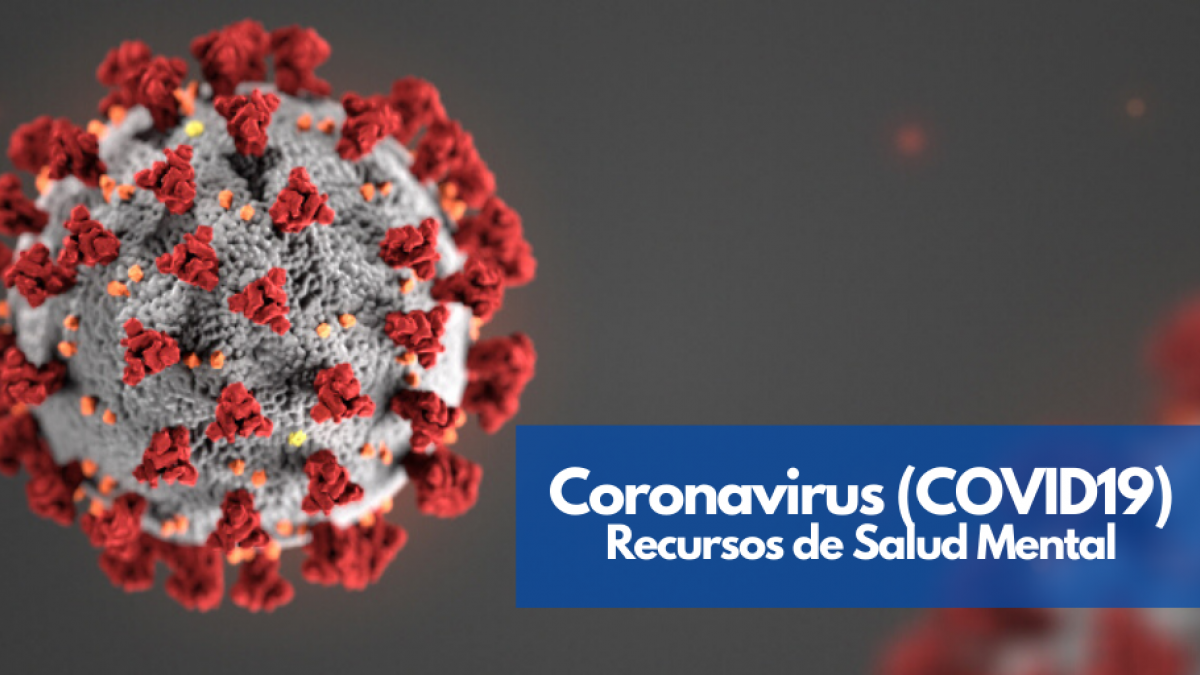Mental Health Resources

The coronavirus outbreak has been stressful for many people, forcing us to adapt to a new reality. Fear and anxiety about a disease can be overwhelming and cause strong emotions in adults and children. Taking care of your emotional health during an emergency will help you think clearly and react to the urgent needs to protect yourself and your family. My staff and I will continue to work to ensure that everyone is protected and well informed. We will continue to fight this together. Below are some mental health resources that offer assistance and resources as we navigate through this time.
Centers for Disease Control and Prevention (CDC) provides guidelines for coping with a disaster or traumatic event which can be found here. Tips include:
- Take care of your body
- Connect with others
- Take breaks
- Stay informed
- Avoid too much exposure to news
- Seek help when needed
Resources from the Center for Disease Control and Prevention (CDC):
Center for Disease Control and Prevention - Coping with a Disaster or Traumatic Event: This website offers resources to learn how to cope and take care of yourself and your family during an emergency.
CDC - Helping Children Cope with Emergencies: This time can be challenging to explain to children, regardless of their age. The CDC offers advice, guidance, and tools to best meet your child's needs during this time.
CDC - Resources for State and Local Governments: Emergencies can have a significant impact on individuals' mental and behavioral health. State and local health departments should include mental health management in each phase of a disaster (pre-event, response, recovery, and evaluation). See more information in the link provided.
CDC - Resources for Community and Religious Leaders: Community organizations and religious groups play an important role in helping communities and individuals cope during and after a disaster. On this page you will find information to help support coping, how to have compassionate communication, and when to refer someone for professional help.
CDC - Emergency Responders: Tips for taking care of yourself: Sources of stress for emergency responders may include witnessing human suffering, risk of personal harm, intense workloads, life-and-death decisions, and separation from family. This page offers help for stress prevention and management, understanding burnout, and how to best prepare yourself and your family.
Resources from Substance Abuse and Mental Health Service Administration (SAMHSA)
The Substance Abuse and Mental Health Services Administration's (SAMHSA's) has a Disaster Distress Helpline dedicated to providing immediate crisis counseling for people who are experiencing emotional distress related to any natural or human-caused disaster.
You can call 1-800-985-5990 or text TalkWithUs to 66746. (TTY 1-800-846-8517)
Callers to the hotline can also connect with counselors in over 100 other languages via 3rd-party interpretation services: to connect with a counselor in your primary language, simply indicate your preferred language to the responding counselor and she/he will connect to a live interpreter (interpretation in less commonly-spoken languages may require calling back at an appointed time). Learn more and download information about the Disaster Distress Helpline in 30 of the most commonly spoken languages in the U.S.
Trevor Project Helpline
If you are thinking about suicide and in need of immediate support, please call the TrevorLifeline at 1-866-488-7386 or select TrevorChat below to connect with a counselor. Use the portal below to get connected to the help you need, especially during this time as our community continues to deal with the health and economic impacts of the COVID-19 pandemic.
Harris County Mental Health Services
The Harris Center has activated a COVID-19 Mental Health Line. If you or a loved one need help coping with anxiety, grief, worry, or other behavioral health issues, please consider calling the The Harris Center's Mental Health Support Line at 833-251-7544.
Crisis Intervention of Houston, Inc.
The Crisis Intervention of Houston, Inc. is a 501c3 nonprofit organization with the sole mission to help people in crisis. They operate free, confidential, anonymous crisis and suicide prevention counseling, 24 hours a day, seven days a week.
They offer the only Survivor of Suicide Support Group serving Houston/Harris County and immediate surrounding counties. They are available to provide presentations and suicide prevention education on a limited basis. Below are the numbers you can reach out to if you are in need of mental health support. Click here for more information.
- The Hotline: 832-416-1177
- Teen Hotline: 832.416.1199 (CALL); 281.201.4430 (TEXT)
Other Resources:
UNICEF guidance for teenagers during coronavirus (COVID-19) - This article outlines six tips to share with teenagers on how to protect their mental health during COVID-19.
The National Alliance on Mental Illness (NAMI) has created a resource guide to help you cope during this public health crisis: COVID-19 (CORONAVIRUS) INFORMATION AND RESOURCES
Important Numbers and Hotline Information:
If you, or someone you care about, are feeling overwhelmed with emotions like sadness, depression, or anxiety, or feel like you want to harm yourself or others during this public health outbreak or any other time, then call:
-
In the event of an immediate emergency: please call 911.
-
National Suicide Prevention Lifeline: 1-800-273-8255
-
SAMHSA's National Helpline: 1-800-662-HELP (4357)
-
SAMHSA's National Helpline is a free, confidential, 24/7, 365-day-a-year treatment referral and information service (in English and Spanish) for individuals and families facing mental and/or substance use disorders.
-
-
National Alliance on Mental Illness Helpline: 1-800-950-6264